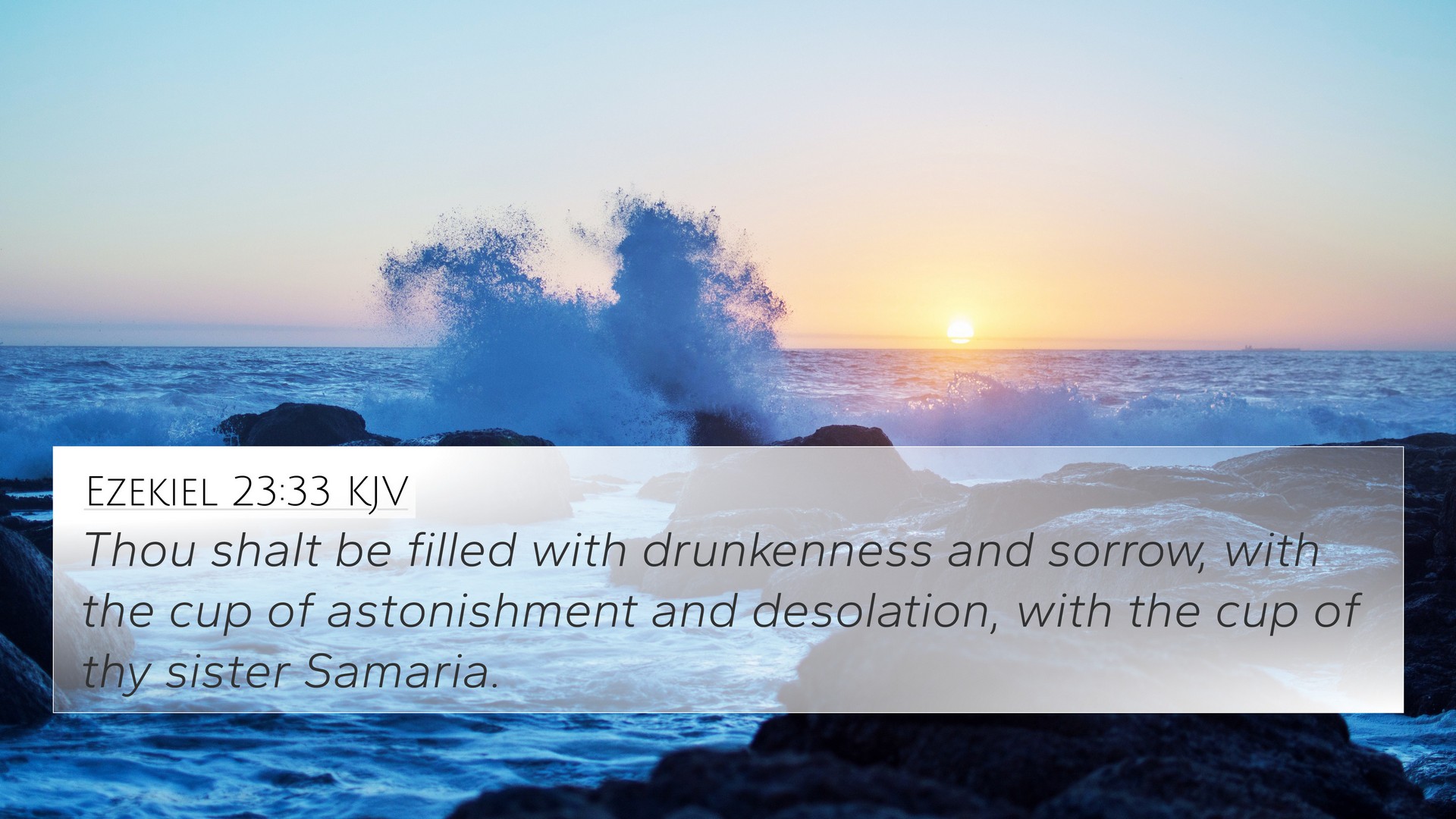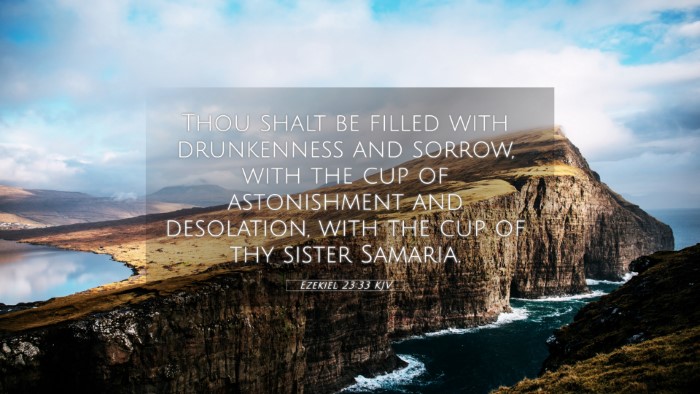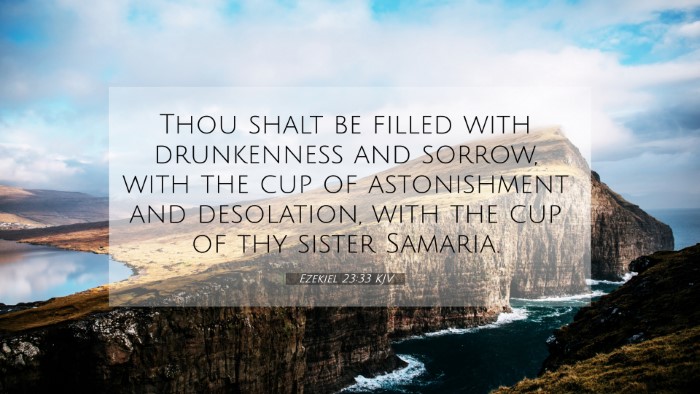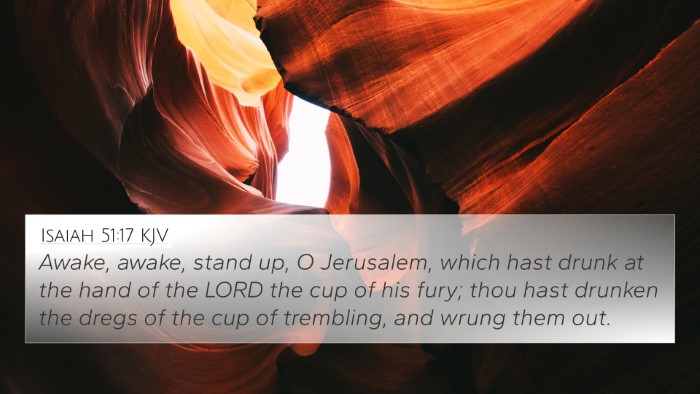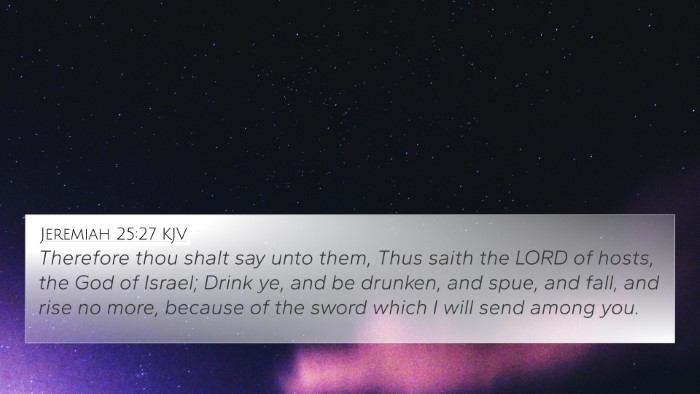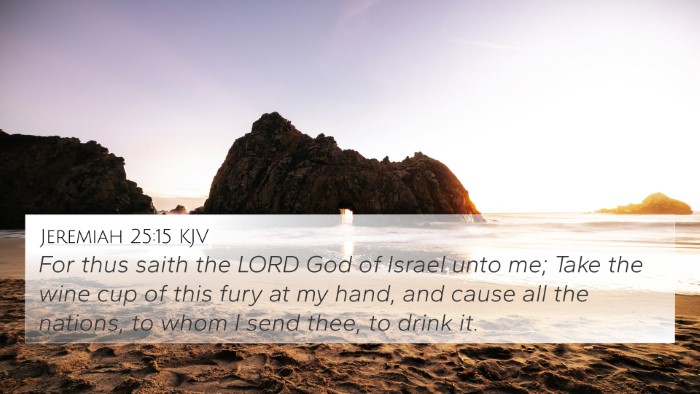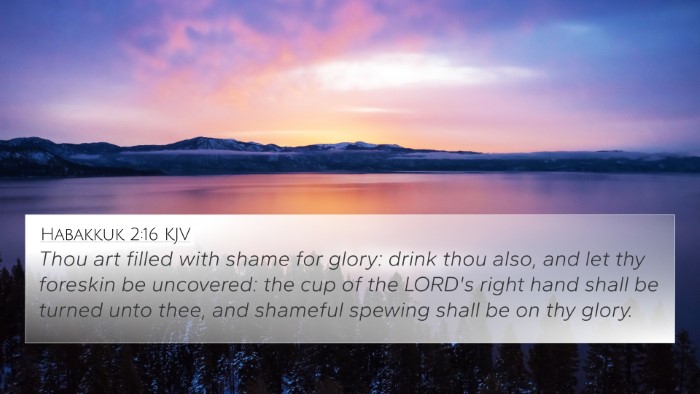Ezekiel 23:33: Understanding the Verse
Ezekiel 23:33 states: "Thou shalt be filled with drunkenness and sorrow, with the cup of astonishment and desolation, with the cup of thy sister Samaria." This verse is part of an allegorical indictment against Jerusalem and Samaria, portrayed as two sisters—Oholah and Oholibah. Through the prophetic message of Ezekiel, the Lord outlines the consequences of their spiritual infidelity and idolatry.
Contextual Background
In Ezekiel's narrative, Jerusalem represents the sinful nation of Judah, while Samaria symbolizes the northern kingdom of Israel. The historical backdrop includes the deep-seated idolatry and moral decay that both nations exhibited, which provoked divine judgment. This verse employs strong imagery related to drunkenness, symbolizing loss of control and judgment, emphasizing the inevitable consequence of turning away from God.
Verse Analysis
1. Symbolism of Drunkenness:
- The term "drunkenness" often signifies confusion and lack of clarity in one’s actions, akin to moral aberration.
- It implies a state where judgment is impaired, leading to destructive consequences, a fitting description of the moral state of both kingdoms.
2. The Cup of Astonishment:
- This cup represents divine judgment filled with overwhelming sorrow and astonishment.
- The imagery connects the concept of astonishment to the devastation that results from sin.
3. Reference to Samaria:
- By referring to "thy sister Samaria," Ezekiel draws parallels, underscoring Judah's sins by likening them to those of Samaria.
- It serves as a warning that the same fate that befell Samaria could come upon Jerusalem if they do not repent.
Thematic Connections
The theme of divine judgment for idolatry appears prominently throughout Scripture. Key themes include:
- Accountability: Both nations are held accountable for turning away from God, reflecting a universal truth about the seriousness of sin.
- Divine Justice: God's justice is portrayed through the imagery of a cup filled to the brim with the consequences of their actions.
- Repentance: Implicit in this passage is the call for repentance to avoid suffering and desolation.
Cross-References to Ezekiel 23:33
To gain a deeper understanding of Ezekiel 23:33, it's helpful to explore cross-references within the Bible. Here are some key connections:
- Isaiah 51:17: Speaks of the cup of God's fury, paralleling the theme of divine judgment.
- Jeremiah 25:15-16: Discusses the same cup of wrath which the nations are to drink, emphasizing the impending destruction.
- Hosea 4:11: Illustrates how wine and new wine take away understanding, connecting addiction to spiritual ignorance.
- Revelation 14:10: Mentions drinking the wine of God's wrath, projecting the theme of judgment into the New Testament.
- Ezekiel 16:49-50: Reflects on Jerusalem and Sodom, indicating the high degree of moral decay leading to judgment.
- Amos 6:6: Discusses the complacency of Israel, similar to Judah’s arrogant defiance against God.
- Lamentations 4:21-22: Exclaims a sense of desolation and suffering similar to what Ezekiel foreshadows.
Conclusion
In summary, Ezekiel 23:33 sends a powerful message about the consequences of unfaithfulness to God. The verse serves not only as a historical account but also as a thematic warning.
The use of strong imagery in this passage captures the dire results of spiritual infidelity while emphasizing the need for repentance. Understanding this verse and its context encourages readers to recognize the importance of maintaining a faithful relationship with God.
For Deeper Study: Tools for Bible Cross-Referencing
To fully appreciate the connections and meanings within the Bible, consider utilizing the following tools:
- Bible concordance: Helps find specific words and their occurrences.
- Bible cross-reference guide: Useful for identifying related verses.
- Cross-reference Bible study: Encourages thematic exploration of related texts.
- Bible reference resources: Various formats to facilitate study across scriptures.
